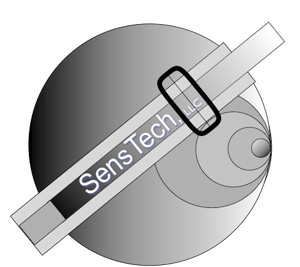
The Water Quality of Deep Creek Lake
1. What is Water Quality?
* Water quality is a neutral term that relates to the composition of water as affected by natural processes and human activities
* It is a measure of the condition of water relative to the requirements of one or more biotic species and or to any human need or purpose
2. Water quality standards are mandated by the EPA Clean Water Act
3. Analyses of individual chemicals generally are done at a laboratory
4. A water quality standard consists of four basic elements:
* designated uses of the water body (eg, recreation, water supply, aquatic life, agriculture, protection)
* water quality criteria to protect designated uses (numeric pollutant concentrations and narrative requirements)
* an anti-degradation policy to maintain and protect existing uses and high quality waters.
* general policies addressing implementation issues (eg, low flows, variances, mixing zones)
5. Some aspects of water quality can be determined right in the stream or at the well.
* Temperature
* Acidity (pH)
* Dissolved oxygen
* Electrical conductance (an indirect indicator of dissolved minerals in the water)
6. Why is it important to address water quality? * The quality of the water of Deep Creek Lake strongly affects the economic well-being of the County, its residents and property owners
7. What is acceptable water quality?
* Deep Creek Lake is defined as a ‘recreational’ and ‘power producing-water body.
* EPA promulgated water quality criteria corresponding to an illness rate of 0.8% for swimmers in freshwater (the BEACH Act Rule of Nov 16, 2004)(based on a calculated risk level from 200 fecal coliform per 100 ml)
8. How does water quality change?
* Runoff from the land in the watershed
* Spillage from water vessels and manmade things in the watershed
9. What needs to be done to maintain our water quality?
* Monitor the water
* Monitor human activities in the watershed
* Be able to forecast impact from natural and manmade changes in the watershed
10. How can we best do this?
* Establish an independently run program office that monitors all lake related activities
* The office should take direction from an independent body of stake holders in the well being of the lake
11. Who are the stake holders?
* Everybody is a stakeholder
* The Deep Creek Lake Property Owners Association and their following
* Deep Creek Lake DNR
* Friends of Deep Creek Lake
* DNR Land Acquisition and Planning
* The Deep Creek Lake Policy and Review Board
* Concerned Citizens and Area Property Owners
* Users of the lake (boaters, fishermen, divers, etc)
* County Government
* Maryland Department of the Environment
* Federal Agencies (EPA, Corps of Engineers)
* Others
12. How do we get things started?
* Defining the ‘flag bearer’
* Have a ‘scientific’ conference to discuss the issues
* Set in motion the resulting recommendations
PLV
First Published: 2017-11-05
Revised: 11/8/2017
Adapted for this website: 01/14/2018